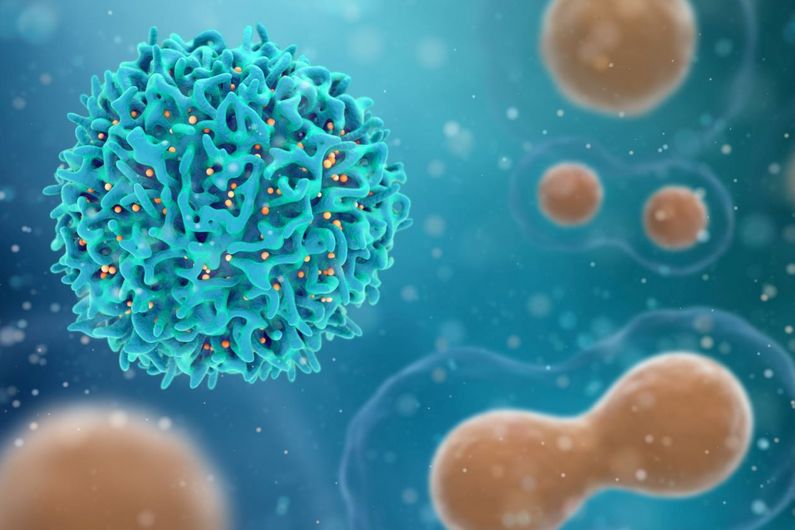Increasing the capacity of the immune system to kill cancer cells
- Salle de presse
01/17/2022
- UdeMNouvelles
UdeM cancer specialist André Veillette and his team at the IRCM unveil a promising approach using molecules found in macophages.
Awakening the immune system’s instinct for destroying cancer, using two molecules located on the surface of macrophages: that’s the promising avenue opening up from recent laboratory work of Dr. André Veillette.
Director of the Molecular Oncology Research Unit of the Montreal Clinical Research Institute (IRCM) and a professor in the Department of Medicine at the Université de Montréal, Veillette recently published his findings in the journal Cell Reports.
His study unveils an innovative therapeutic way to treat cancer in line with the burgeoning field of precision medicine. For several years now, immunology and personalized medicine have brought new hope to physicians and patients in the fight against cancer.
These advanced therapies largely target cells of the immune system called T cells or T lymphocytes, whose role is to defend the body against harmful foreign agents such as viruses, bacteria and parasites, on the one hand, but also against cancer cells.
Among these "guardians of the body" are also macrophages, cells whose central role is to eliminate harmful agents by simply devouring them. There is a growing interest, among scientists and pharmaceutical companies, in targeting macrophages for therapeutic purposes.
In their lab, Dr. Veillette's team discovered that macrophages are particularly good at destroying certain types of cancer cells. Even more, the team was able to greatly stimulate the appetite of these immune cells. In particular, they uncovered two molecules located on the surface of macrophages (CD11a and CD11c) which can be activated to increase their instinct to destroy macrophages.
In animal models and in human cell cultures in the lab, the stimulated macrophages turn into super-eaters of cancer cells.
“The ability to unleash the destructive power of macrophages is an important discovery that paves the way to some really exciting new possibilities in personalized medicine,” said Zhenghai Tang, co-first author of the study with Dominique Davidson. “In fact,added Davidson, “we help the body to protect itself better.”
This new use of the molecules to help the body cope better with cancer is an outgrowth of ongoing work in Dr. Veillette’s lab. He and his team have been studying the mechanisms that govern the functioning of the immune system for the past 30 years. In 2017, in a work published in the journal Nature, the team shed light on the SLAMF7 molecule, which also acts on the destructive capacity of macrophages.
“The more we know about the functioning of the immune system, the more we will be able to find effective and less toxic therapeutic solutions to fight diseases,” said Veillette. “Immune cells like macrophages are gaining a lot of interest in immunology research today, but also in the pharmaceutical industry, because this is truly the future of medicine for many deadly diseases.”
He added: “For our part, the next step will be to establish to what extent the molecules CD11a and CD11c can be used as biomarkers to identify patients who are most likely to respond to this type of therapy.”
Media contact
-
Valérie Morquette
Institut de recherches cliniques de Montréal
Tel: 514 987-5555 -
Julie Gazaille
Université de Montréal
Tel: 514 343-6796












